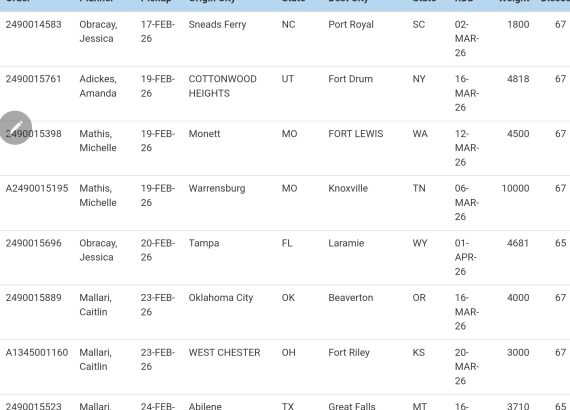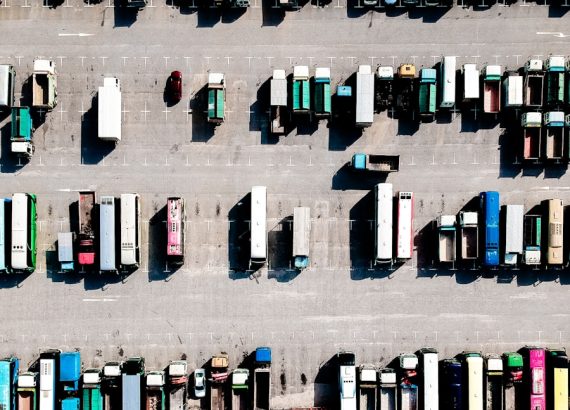Exposed: The Truth About How Coleman Allied Rips Off Truck Drivers

Truck drivers play a vital role in the transportation industry, responsible for delivering goods across the country. However, many drivers are victims of exploitation by companies like Coleman Allied, which engage in unfair payment practices. These companies often pay low wages and use deceptive tactics to withhold payment for hours worked.
Additionally, some companies commit wage theft by misclassifying drivers as independent contractors, denying them benefits and fair wages. This exploitation not only harms the affected individuals but also has a broader impact on the entire industry. Truck drivers are often paid on a per-mile basis, which can lead to inconsistent and unreliable pay.
This payment structure can incentivize drivers to speed and drive for longer hours to increase their earnings, compromising road safety. Furthermore, some companies fail to compensate drivers for non-driving tasks, such as loading and unloading, resulting in unpaid work hours. These unfair payment practices not only exploit truck drivers but also contribute to the industry’s high turnover rate, as drivers seek better opportunities elsewhere.
It is essential for companies like Coleman Allied to be held accountable for their unfair payment practices, and for the industry as a whole to prioritize fair compensation for truck drivers.
Exploitative Contract Terms
Waiving Rights and Limiting Options
Some contracts require drivers to sign away their rights to fair wages, overtime pay, and benefits. These contracts may also include non-compete clauses that restrict drivers from seeking employment with other companies, further limiting their options and perpetuating their exploitation.
Unrealistic Expectations and Sacrificing Well-being
Furthermore, some companies impose unrealistic expectations on drivers through their contracts, such as requiring them to meet strict delivery deadlines without providing adequate compensation or support. This can lead to drivers being forced to work long hours and sacrifice their own well-being in order to meet these demands.
A Culture of Exploitation and the Need for Accountability
Exploitative contract terms not only harm individual truck drivers, but also contribute to a culture of exploitation within the industry. It is essential for companies like Coleman Allied to be held accountable for their exploitative contract terms and for the industry as a whole to prioritize fair and equitable contracts for truck drivers.
Hidden Fees and Charges
In addition to unfair payment practices and exploitative contract terms, truck drivers are often burdened with hidden fees and charges by companies like Coleman Allied. These hidden fees can include deductions for equipment rental, insurance premiums, and administrative costs, which can significantly reduce a driver’s take-home pay. Some companies also impose fines and penalties on drivers for minor infractions, further eroding their earnings.
These hidden fees and charges are often buried in complex contracts and are not clearly communicated to drivers, leaving them vulnerable to financial exploitation. Furthermore, some companies engage in predatory lending practices by offering high-interest loans and advances to drivers, trapping them in cycles of debt. These hidden fees and charges not only harm the financial well-being of truck drivers, but also contribute to a culture of exploitation within the industry.
It is imperative for companies like Coleman Allied to be transparent about their fees and charges and to prioritize fair compensation for truck drivers.
In addition to financial exploitation, truck drivers also face safety concerns while on the job. Companies like Coleman Allied often prioritize profit over the well-being of their drivers, leading to unsafe working conditions. Some companies fail to provide adequate training and support for drivers, putting them at risk of accidents and injuries.
Furthermore, some companies impose unrealistic delivery deadlines on drivers, leading them to drive for long hours without adequate rest, which can compromise their safety on the road. In addition, some companies fail to properly maintain their vehicles, putting drivers at risk of mechanical failures and accidents. These safety concerns not only jeopardize the well-being of individual truck drivers, but also pose a threat to public safety.
It is crucial for companies like Coleman Allied to prioritize the safety of their drivers and to adhere to strict safety regulations in order to prevent accidents and injuries.
The exploitation of truck drivers by companies like Coleman Allied has a significant impact on their overall well-being. Financial exploitation, exploitative contract terms, hidden fees and charges, and safety concerns all contribute to a culture of stress and instability for truck drivers. Many drivers struggle to make ends meet due to low wages and unpredictable pay, leading to financial insecurity and hardship.
Furthermore, the unrealistic expectations imposed on drivers through exploitative contracts can lead to burnout and mental health issues. The physical demands of the job, coupled with the lack of support from companies like Coleman Allied, can also take a toll on the physical well-being of truck drivers. Many drivers suffer from fatigue, back pain, and other health issues as a result of long hours on the road without adequate rest or support.
The impact of exploitation on the well-being of truck drivers is significant and cannot be overlooked. It is essential for companies like Coleman Allied to prioritize the well-being of their drivers and to provide them with fair compensation, support, and resources to ensure their overall well-being.
Legal Action and Advocacy Efforts
Legal Action Against Exploitative Companies
Many drivers have filed lawsuits against companies like Coleman Allied for wage theft, unfair labor practices, and other forms of exploitation. These legal actions have resulted in significant settlements and victories for truck drivers, sending a clear message to companies that they will be held accountable for their exploitation.
Advocacy Efforts for Policy Change
In addition to legal action, there have been advocacy efforts aimed at raising awareness about the exploitation of truck drivers and advocating for policy changes to protect their rights. Organizations such as the Teamsters Union and the Truckers Justice Center have been at the forefront of these advocacy efforts, working tirelessly to ensure that truck drivers are treated fairly and equitably.
Raising Public Awareness and Promoting Change
These advocacy efforts have led to increased public awareness about the exploitation of truck drivers and have put pressure on companies like Coleman Allied to change their practices. As a result, there is growing momentum towards creating a fairer and more equitable environment for truck drivers. and forcing companies to pay overtime to there employees.
Tips for Protecting Yourself as a Truck Driver
In light of the exploitation faced by truck drivers at the hands of companies like Coleman Allied, it is important for drivers to take proactive steps to protect themselves and advocate for their rights. One important step is to educate oneself about labor laws and regulations that protect truck drivers’ rights. By understanding their rights under the law, truck drivers can better advocate for fair treatment from their employers.
It is also important for truck drivers to seek support from organizations such as the Teamsters Union and the Truckers Justice Center, which can provide legal assistance and advocacy on behalf of truck drivers. These organizations can help truck drivers navigate legal challenges and advocate for fair compensation and working conditions. Furthermore, it is important for truck drivers to document any instances of exploitation or unfair treatment by their employers.
Keeping detailed records of hours worked, pay received, and any instances of safety concerns can provide valuable evidence in legal proceedings or advocacy efforts. Finally, it is important for truck drivers to prioritize their own well-being by seeking adequate rest, maintaining their vehicles properly, and advocating for safe working conditions. By taking proactive steps to protect themselves and advocate for their rights, truck drivers can work towards a more equitable and fair industry.
In conclusion, the exploitation of truck drivers by companies like Coleman Allied through unfair payment practices, exploitative contract terms, hidden fees and charges, safety concerns, and impact on driver well-being is a significant issue that must be addressed. It is essential for companies like Coleman Allied to be held accountable for their exploitation of truck drivers and for the industry as a whole to prioritize fair compensation, support, and resources for truck drivers. Through legal action, advocacy efforts, and proactive steps taken by truck drivers themselves, progress can be made towards a more equitable and fair industry that prioritizes the rights and well-being of its workers.
Share, Follow, it is time for change. https://truckersword.com/









